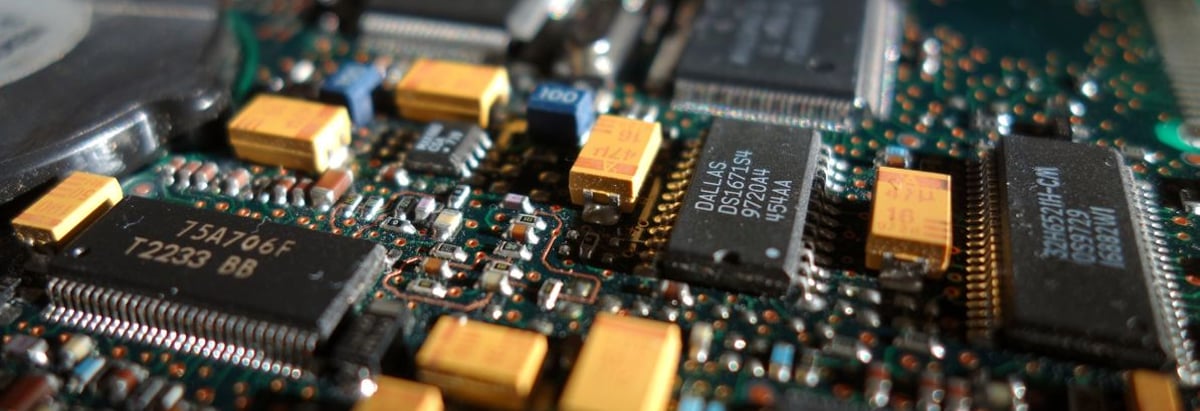Stock Analysis
- South Korea
- /
- Semiconductors
- /
- KOSDAQ:A080220
We Think Jeju Semiconductor (KOSDAQ:080220) Can Stay On Top Of Its Debt

Some say volatility, rather than debt, is the best way to think about risk as an investor, but Warren Buffett famously said that 'Volatility is far from synonymous with risk.' So it might be obvious that you need to consider debt, when you think about how risky any given stock is, because too much debt can sink a company. Importantly, Jeju Semiconductor Corp. (KOSDAQ:080220) does carry debt. But is this debt a concern to shareholders?
When Is Debt Dangerous?
Debt is a tool to help businesses grow, but if a business is incapable of paying off its lenders, then it exists at their mercy. In the worst case scenario, a company can go bankrupt if it cannot pay its creditors. However, a more usual (but still expensive) situation is where a company must dilute shareholders at a cheap share price simply to get debt under control. Of course, plenty of companies use debt to fund growth, without any negative consequences. When we think about a company's use of debt, we first look at cash and debt together.
View our latest analysis for Jeju Semiconductor
What Is Jeju Semiconductor's Debt?
You can click the graphic below for the historical numbers, but it shows that as of June 2024 Jeju Semiconductor had ₩19.5b of debt, an increase on ₩16.5b, over one year. However, it does have ₩21.7b in cash offsetting this, leading to net cash of ₩2.17b.
How Strong Is Jeju Semiconductor's Balance Sheet?
Zooming in on the latest balance sheet data, we can see that Jeju Semiconductor had liabilities of ₩38.2b due within 12 months and liabilities of ₩1.77b due beyond that. Offsetting this, it had ₩21.7b in cash and ₩68.1b in receivables that were due within 12 months. So it can boast ₩49.7b more liquid assets than total liabilities.
This short term liquidity is a sign that Jeju Semiconductor could probably pay off its debt with ease, as its balance sheet is far from stretched. Succinctly put, Jeju Semiconductor boasts net cash, so it's fair to say it does not have a heavy debt load!
On top of that, Jeju Semiconductor grew its EBIT by 70% over the last twelve months, and that growth will make it easier to handle its debt. There's no doubt that we learn most about debt from the balance sheet. But it is Jeju Semiconductor's earnings that will influence how the balance sheet holds up in the future. So when considering debt, it's definitely worth looking at the earnings trend. Click here for an interactive snapshot.
Finally, a business needs free cash flow to pay off debt; accounting profits just don't cut it. Jeju Semiconductor may have net cash on the balance sheet, but it is still interesting to look at how well the business converts its earnings before interest and tax (EBIT) to free cash flow, because that will influence both its need for, and its capacity to manage debt. In the last three years, Jeju Semiconductor created free cash flow amounting to 13% of its EBIT, an uninspiring performance. That limp level of cash conversion undermines its ability to manage and pay down debt.
Summing Up
While it is always sensible to investigate a company's debt, in this case Jeju Semiconductor has ₩2.17b in net cash and a decent-looking balance sheet. And we liked the look of last year's 70% year-on-year EBIT growth. So we don't think Jeju Semiconductor's use of debt is risky. Above most other metrics, we think its important to track how fast earnings per share is growing, if at all. If you've also come to that realization, you're in luck, because today you can view this interactive graph of Jeju Semiconductor's earnings per share history for free.
At the end of the day, it's often better to focus on companies that are free from net debt. You can access our special list of such companies (all with a track record of profit growth). It's free.
New: Manage All Your Stock Portfolios in One Place
We've created the ultimate portfolio companion for stock investors, and it's free.
• Connect an unlimited number of Portfolios and see your total in one currency
• Be alerted to new Warning Signs or Risks via email or mobile
• Track the Fair Value of your stocks
Have feedback on this article? Concerned about the content? Get in touch with us directly. Alternatively, email editorial-team (at) simplywallst.com.
This article by Simply Wall St is general in nature. We provide commentary based on historical data and analyst forecasts only using an unbiased methodology and our articles are not intended to be financial advice. It does not constitute a recommendation to buy or sell any stock, and does not take account of your objectives, or your financial situation. We aim to bring you long-term focused analysis driven by fundamental data. Note that our analysis may not factor in the latest price-sensitive company announcements or qualitative material. Simply Wall St has no position in any stocks mentioned.
About KOSDAQ:A080220
Jeju Semiconductor
Provides memory semiconductor solutions worldwide.


